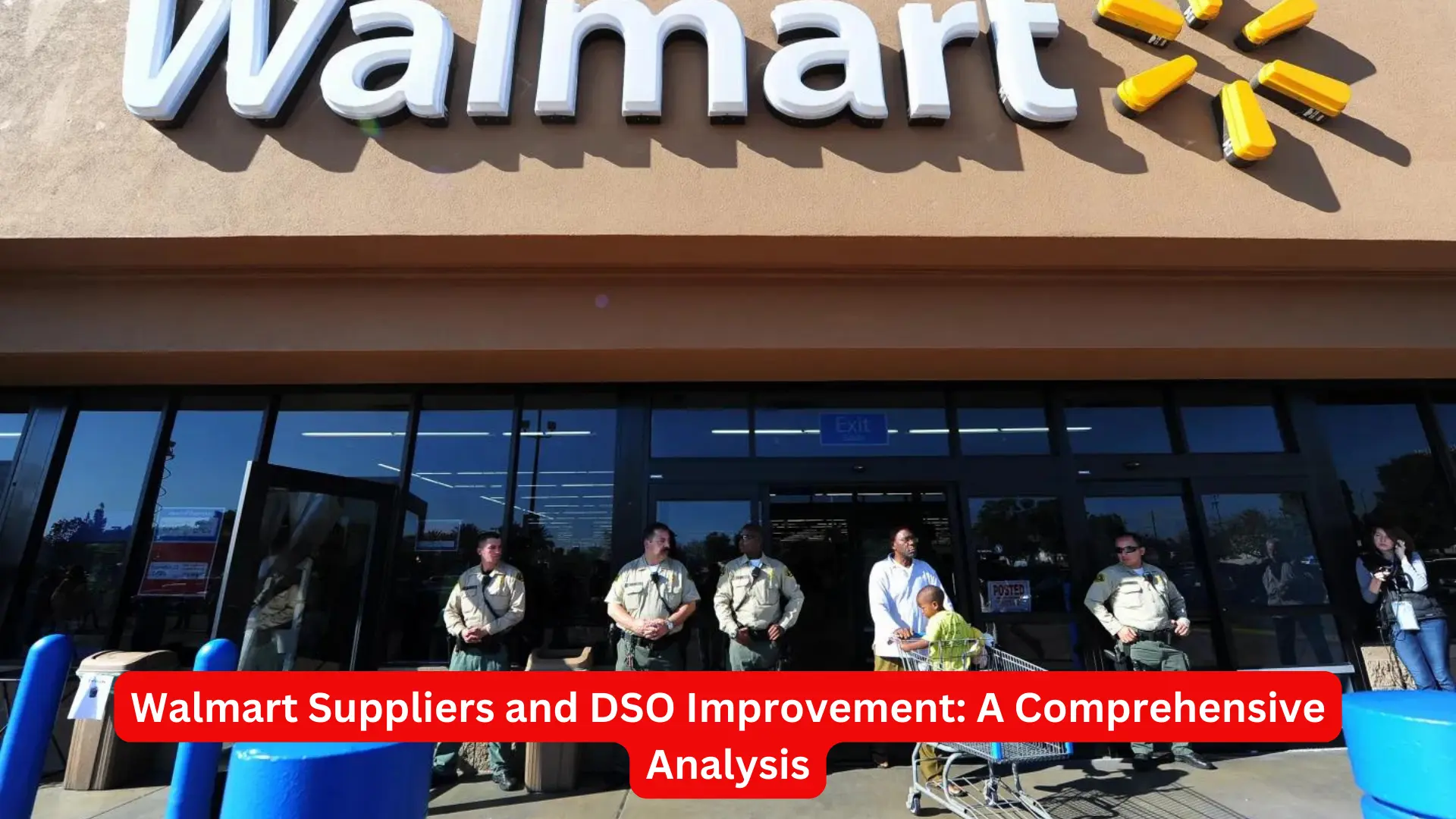Walmart Suppliers and DSO Improvement: A Comprehensive Analysis

In the competitive landscape of global retail, Walmart stands as a colossal entity with an extensive supply chain network. The efficiency of this network significantly impacts its financial performance and operational agility. One crucial aspect of Walmart’s supply chain management is the Days Sales Outstanding (DSO), a critical metric that indicates the average number of days it takes to collect payment after a sale. Improving DSO can enhance cash flow, optimize working capital, and strengthen supplier relationships. This article delves into the intricacies of Walmart’s supplier network and strategies for DSO improvement, providing a detailed analysis to help stakeholders and industry professionals understand and leverage these insights.
Understanding Walmart’s Supply Chain Dynamics
Walmart’s Global Supplier Network
Walmart operates with a vast and diverse network of suppliers globally. This network includes manufacturers, distributors, and service providers who contribute to Walmart’s extensive product range. The company’s success in retail hinges on its ability to efficiently manage these suppliers, ensuring timely delivery of goods and services. The sheer scale of Walmart’s operations necessitates a sophisticated approach to supply chain management, aiming for operational excellence and cost efficiency.
Significance of Days Sales Outstanding (DSO)
Days Sales Outstanding (DSO) is a key performance indicator that measures the average number of days it takes for a company to collect payments from its customers after a sale. For Walmart, managing DSO effectively is crucial as it directly impacts cash flow and working capital. A lower DSO indicates quicker collection of receivables, which can enhance liquidity and reduce the need for external financing.
Strategies for Improving DSO in Walmart’s Supply Chain
1. Enhancing Invoice Accuracy and Efficiency
Invoice accuracy is fundamental in reducing DSO. Walmart must ensure that invoices sent to suppliers are accurate and free from discrepancies. Implementing automated invoicing systems and advanced data analytics can significantly reduce errors and processing times. These systems can track and reconcile transactions in real-time, ensuring that invoices are promptly addressed and payments are expedited.
2. Leveraging Technology for Automated Payments
The integration of automated payment solutions can streamline the payment process. Walmart’s use of technologies such as Electronic Data Interchange (EDI) and automated clearing house (ACH) transactions can accelerate payment cycles. By automating payment processes, Walmart can ensure timely and accurate payments, thus reducing DSO and improving supplier satisfaction.
3. Strengthening Supplier Relationships
Building and maintaining robust supplier relationships is essential for effective DSO management. Walmart should foster open communication and collaboration with suppliers to address any issues related to payment terms and invoicing. Implementing a supplier relationship management (SRM) system can facilitate better communication and negotiation, leading to more favorable payment terms and quicker resolution of disputes.
4. Implementing Efficient Credit Management Policies
Credit management policies play a crucial role in managing DSO. Walmart should establish clear credit terms and conditions with suppliers, including specific payment schedules and penalties for late payments. By enforcing these policies consistently, Walmart can encourage timely payments and reduce the average collection period.
5. Optimizing Supply Chain Finance Solutions
Supply chain finance (SCF) solutions can provide Walmart with additional avenues to improve DSO. Programs such as reverse factoring or supplier financing can offer suppliers faster access to funds, while Walmart benefits from extended payment terms. These solutions help in balancing the cash flow needs of both Walmart and its suppliers, thus optimizing the overall supply chain performance.
Case Study: Walmart’s Approach to DSO Improvement
Success Story: Implementation of Automated Systems
Walmart’s adoption of automated invoicing and payment systems has led to a significant reduction in DSO. By leveraging advanced technology, Walmart has streamlined its accounts payable and receivable processes. This has resulted in faster invoice processing times and improved cash flow management.
Challenges and Solutions
Despite its advancements, Walmart faces challenges in managing DSO, such as supplier disputes and invoice discrepancies. To address these issues, Walmart has implemented robust dispute resolution mechanisms and enhanced its invoicing accuracy through continuous system upgrades. These efforts have contributed to a more efficient supply chain and reduced average DSO.
Future Outlook and Recommendations
1. Continuous Innovation in Technology
Walmart should continue to invest in innovative technologies to further improve DSO. Emerging technologies such as blockchain and artificial intelligence (AI) can offer new opportunities for enhancing transparency, accuracy, and efficiency in supply chain operations.
2. Enhancing Data Analytics Capabilities
Data analytics will play a crucial role in future DSO management. Walmart should leverage advanced analytics to gain insights into payment trends, supplier performance, and cash flow patterns. This information can guide strategic decisions and help in identifying areas for improvement.
3. Expanding Supply Chain Finance Programs
Expanding supply chain finance programs can provide additional flexibility in managing DSO. Walmart should explore new financing options and partnerships to optimize its cash flow and strengthen supplier relationships.
Conclusion
Improving Days Sales Outstanding (DSO) is pivotal for Walmart’s financial health and operational efficiency. By focusing on invoice accuracy, leveraging automation, strengthening supplier relationships, implementing efficient credit management policies, and exploring supply chain finance solutions, Walmart can effectively manage and reduce DSO. Continuous innovation and strategic investments in technology and data analytics will further enhance Walmart’s ability to maintain a competitive edge in the retail sector.



